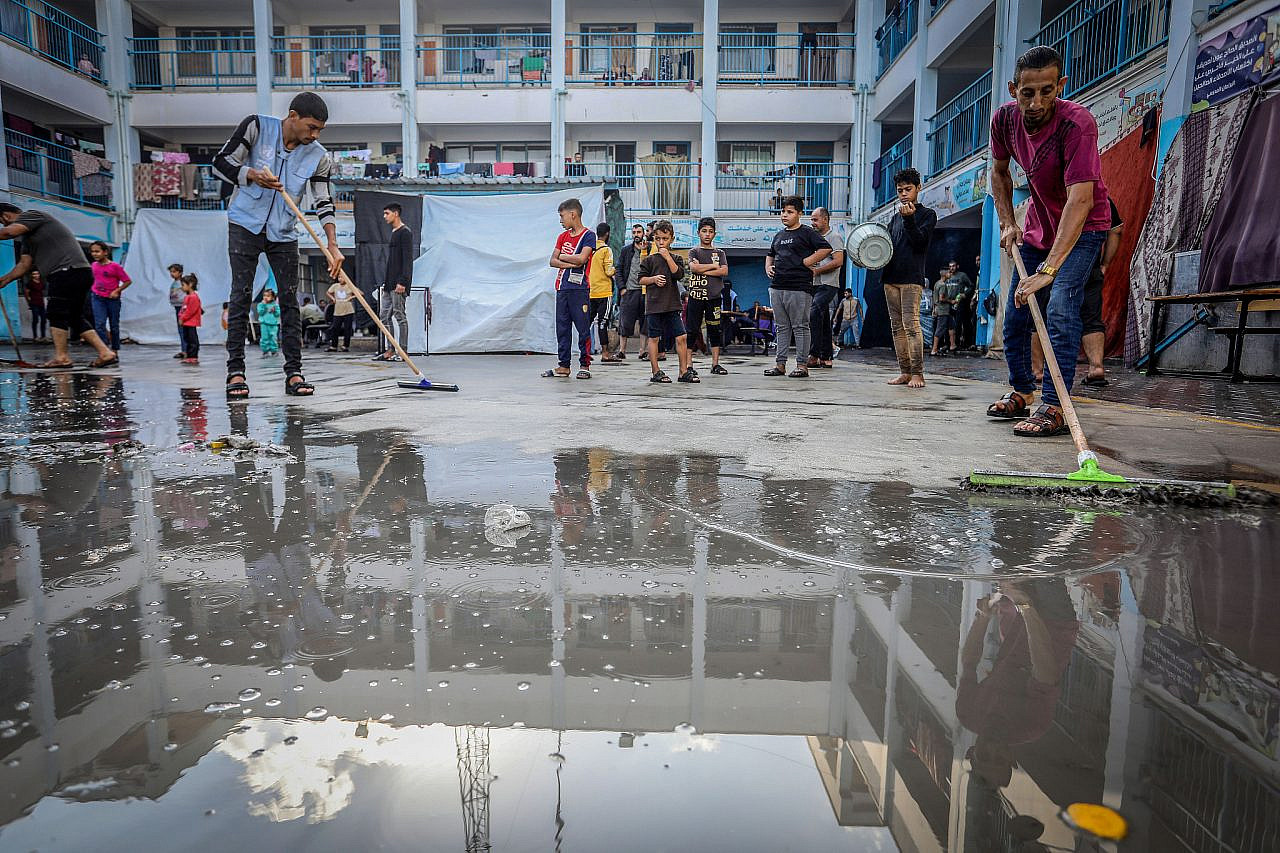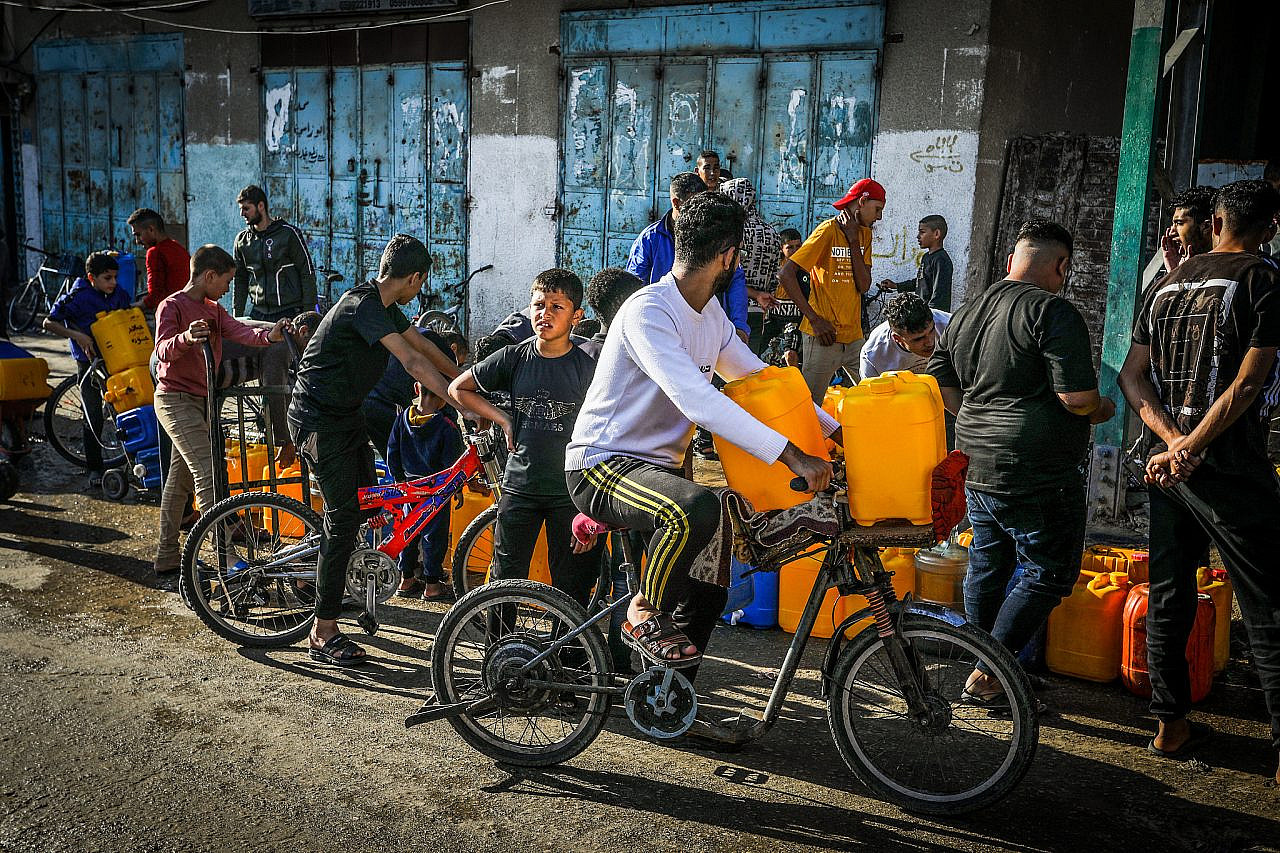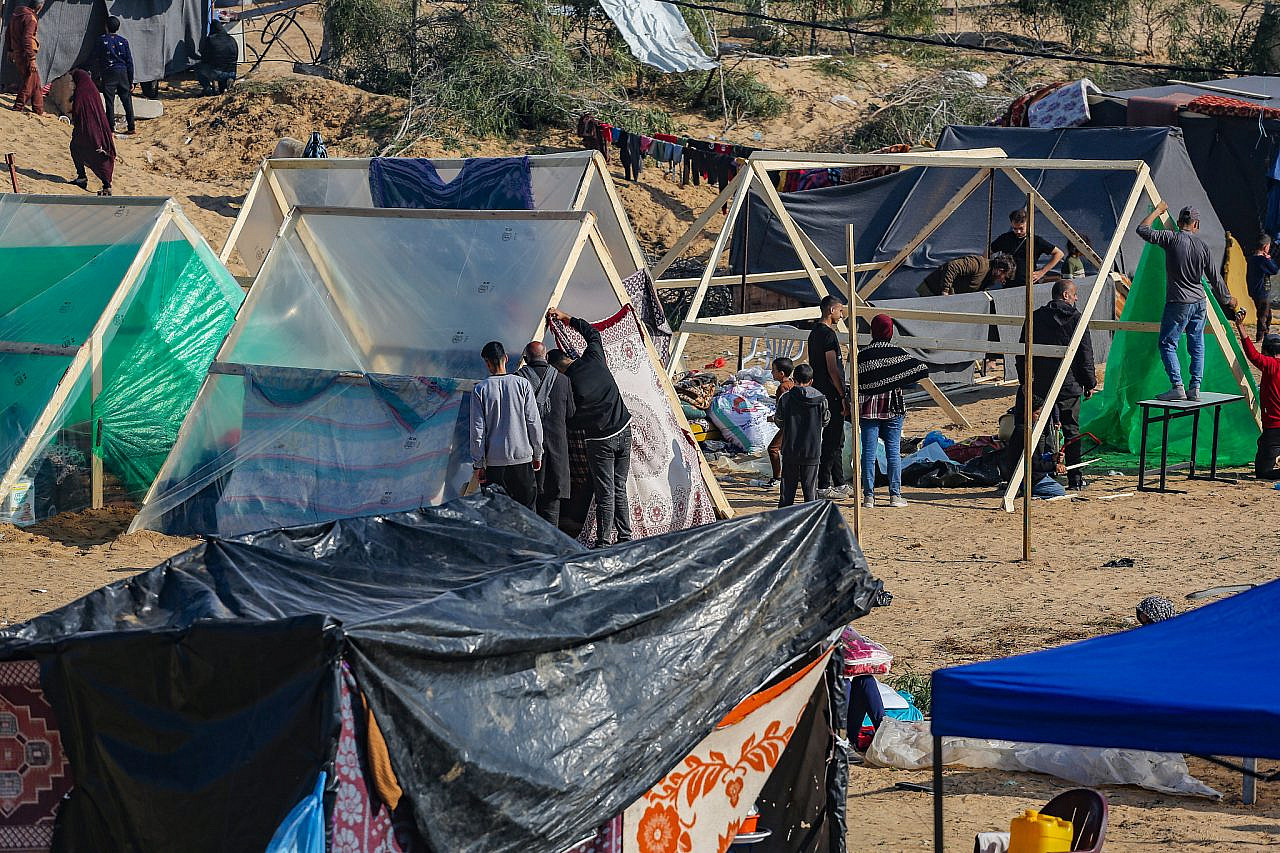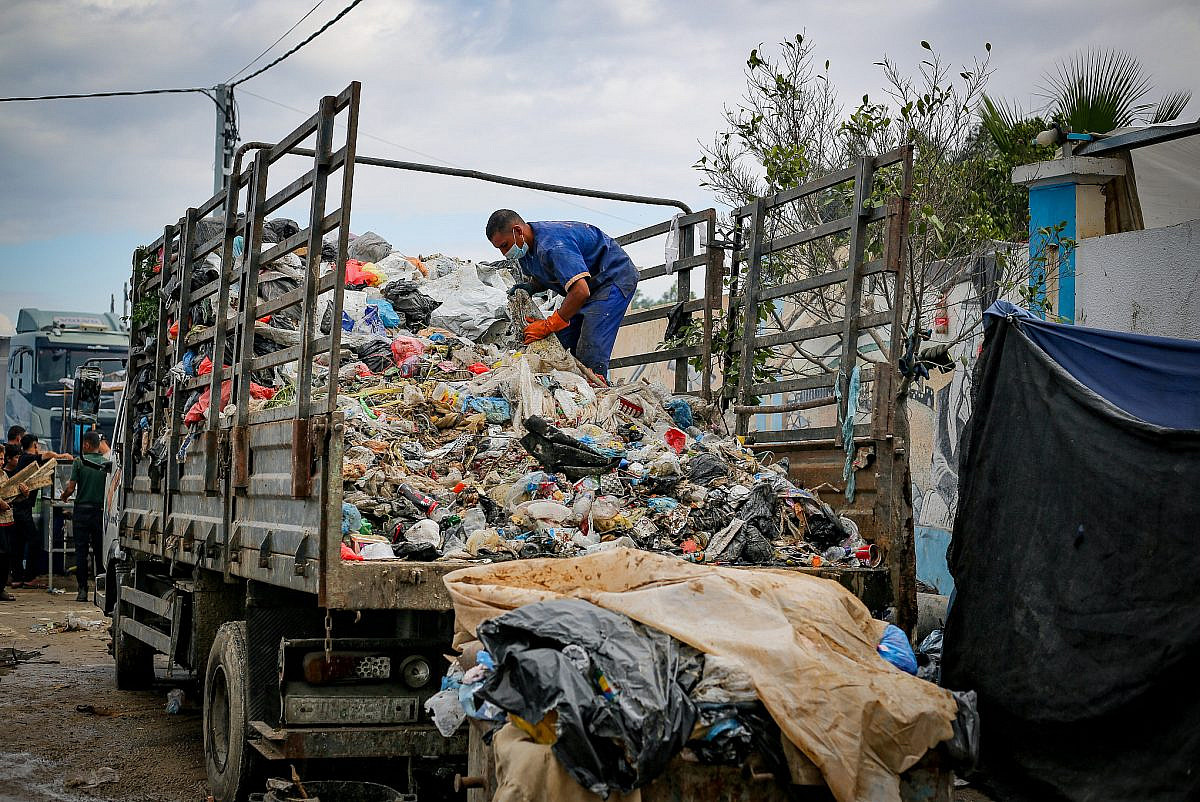In late November, Margaret Harris, a spokesperson for the World Health Organization, warned that without urgent action to repair the Gaza Strip’s rapidly collapsing health system, more people would soon die from disease than from Israel’s bombings. “[There are] no medicines, no vaccination activities, no access to safe water and hygiene and no food,” she said, summarizing the dire humanitarian conditions amid Israel’s ongoing bombardment and intensified siege.
Nearly a month later, the full extent of the crisis is still not being fully comprehended outside of the Strip, according to Palestinian health care professionals in Gaza. “The information, statistics, and news circulating worldwide only scratches the surface of the actual reality,” Dr. Adnan al-Wahidi, a child health expert from Gaza City, told +972. “It captures just a small fraction of the alarming health situation in the Gaza Strip.”
With Israel’s airstrikes and ground invasion forcibly displacing nearly all of the Strip’s 2.2 million residents, there is unprecedented overcrowding in parts of southern Gaza — in particular the city of Rafah, near the border with Egypt, which is still being bombed despite the Israeli army having declared it a “safe zone,” and the coastal area of Al-Mawasi where there is very little infrastructure at all. Tens of thousands of families are sheltering in flooded tent encampments, while starving children queue for hours every day at food distribution centers.
The crowded conditions, as well as the lack of clean water and sanitary bathrooms, are leading to the rapid spread of disease throughout the besieged enclave, according to experts.
Al-Wahidi explained that the issue of water contamination is particularly grave, affecting “all ages and demographic groups, with the repercussions being most pronounced in children.” He also noted that a lack of water and electricity, along with an inability to dispose of or treat sewage water, could have disastrous consequences, adding that the risk of the spread of disease has been further exacerbated by the halt in Gaza’s child vaccination programs due to the war.

Dr. Tamer M. Alnajjar, a project coordinator at the National Institute for Environment & Development in Gaza City, told +972 that the widespread contamination of water sources and the proliferation of sewage in public areas have resulted in a heightened risk of contracting diseases such as cholera. “The absence of adequate purification infrastructure further compounds this issue, exacerbating the risk of waterborne illnesses and gastrointestinal infections,” he added.
Moreover, al-Wahidi estimates that approximately 40 percent of children in Gaza are currently suffering from malnutrition, which can severely impact their growth and development. “The younger a child is, the more vulnerable they are to the effects,” he explained.
There are also specific risks to pregnant and nursing women, especially those currently in shelters. On top of the psychological impacts of being displaced and sheltering in facilities that are not fit for purpose, malnutrition is of particular concern for these women because what little food is currently available lacks important nutrients. This, al-Wahidi explained, can affect the health of the mother, the fetus, or the breastfeeding infant.
Critical shortage of health services
The spiraling threat of disease is being compounded by the fact that three-quarters of Gaza’s hospitals are no longer functional — a result of the Israeli army’s expulsion orders and direct attacks on health facilities in recent weeks. The result is that “there is nowhere to treat sick children, leading to potential long-term impacts on children’s health,” al-Wahidi said.

Even in hospitals that are still functioning, medical staff are overwhelmed by the continuous influx of people with severe burns and other wounds as a result of Israeli airstrikes. Hospitals are facing shortages of essential products, including orthopedic devices to stabilize bones, surgical supplies, and treatment for burns.
Dr. Tareq Abu A’anza, a pediatrician at Al-Nasser Hospital in Khan Younis in the southern Gaza Strip, told +972 that within the remaining hospitals, gastrointestinal diseases have surged fourfold, while skin diseases have tripled.
In a 24-hour period, he explained, Al-Nasser’s emergency department receives between 700 and 1,000 children suffering from various health issues, including skin rashes, meningitis, epidemic hepatitis, respiratory distress, and gastrointestinal infections with severe dehydration. Abu A’anza expressed particular alarm that some children are sick with more than one of these ailments.
According to Abu A’anza, medical teams have reached the point of exhaustion and are unable to sustain their work efforts. Hospitals find themselves incapable of handling additional cases, especially with the arrival of hundreds of thousands of people displaced from northern Gaza. This critical shortage of health services, he warned, will endanger people’s lives.

In a press conference on Dec. 18, Dr. Ashraf al-Qidra, the spokesperson for Gaza’s Health Ministry, addressed Israel’s attacks on Gaza’s hospitals. “The international silence over the crimes of the Israeli occupation forces against hospitals in northern Gaza — their destruction and the arrest of their staff — constitute a green light to implement the criminal scenario in southern Gaza,” he said, adding that Israel had targeted Al-Nasser Hospital twice the day before.
“The health situation in hospitals in southern Gaza is catastrophic and complex as a result of the lack of clinical, medical, and human capabilities required for the number and type of wounded people,” al-Qidra continued. He also described the conditions in the shelters for displaced people as “catastrophic and inhumane.”
Most read on +972
According to al-Qidra, Israel has killed 310 health care professionals, destroyed 102 ambulances, and rendered 138 health care facilities inoperable since the start of the war, including 22 hospitals and 52 primary care centers. The army is also detaining 93 health care workers, including the directors of the three main hospitals in northern Gaza: Dr. Muhammad Abu Salmiya of Al-Shifa Hospital in Gaza City (who +972 interviewed in the first days of the war), Dr. Ahmad al-Kahlout of Kamal Adwan Hospital in Beit Lahiya, and Dr. Ahmed Muhanna of Al-Awda Hospital in Jabalia.
The result of all this is what al-Wahidi described as a “health disaster” — and he foresees even more challenges ahead. “The health system in the Gaza Strip has been completely destroyed, leaving little hope for any sort of recovery in the near future,” he said. Even when the war ends, he warned, the effects of ailments such as child malnutrition will linger for a long time to come.




